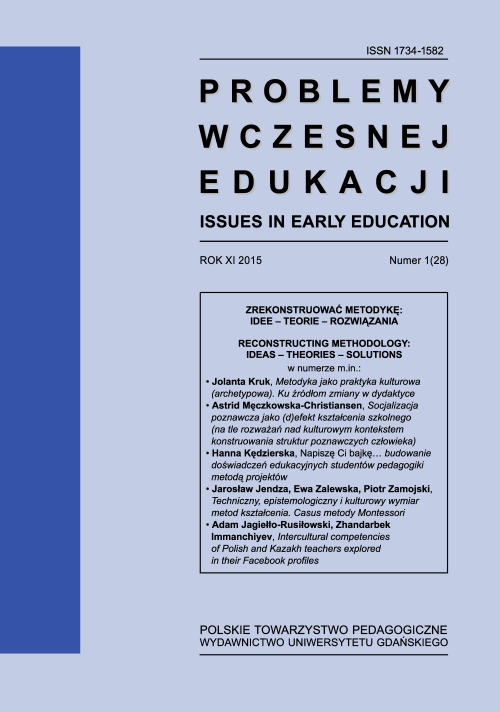The technical, epistemological, and cultural dimensions of educational methods. The casus of the Montessori method
DOI:
https://doi.org/10.5604/01.3001.0008.5669Keywords:
method, technique, epistemology, culture, prepared environment, MontessoriAbstract
This article concerns three fundamental dimensions of all educational methods: technical, epistemological, and cultural. We perceive them as equally important in the process of (re)creating and using any educational method. It seems to us that the technical dimension is quite often the only one or at least the most essential one in the area of Polish educational practices, and sometimes also in the theory of education. This situation is, however, undesirable since it may lead to the decontextualisation of the methods, and – as a consequence – limit their educational potential. Referring to the Montessori approach and more specifi cally to one of the most signifi cant concepts within the method – namely to the idea of „prepared environment” in which three aspects can be distinguished: material, structural – dynamic, and personal, we describe the roles that they play in the procedures of constructing teaching methods showing their integral character.

 Academic Scientific Journals
Academic Scientific Journals





